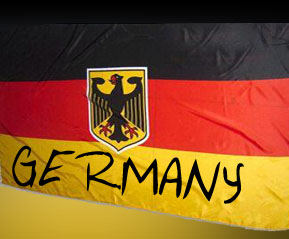Crime rates cause concern in the German capital
 Berlin - The German capital remains one of Europe's most exciting cities, appealing to tourists with culture shows and night-life, but Berlin's shabby underside is crime which police can never quite bring under control.
Berlin - The German capital remains one of Europe's most exciting cities, appealing to tourists with culture shows and night-life, but Berlin's shabby underside is crime which police can never quite bring under control.
After Germany's reunification in 1989, Berlin became a playground for underworld figures battling for control of its red-light and drug dealing trades. Italian and Russian gangsters are rumoured to have also gained a foothold in the city in recent years.
Daring thefts have shocked the city authorities in recent months.
In the most notable, in January, a trio of masked gunmen carried out a spectacular raid on the downtown Ka-De-We luxury department store.
After forcing a first-floor window, the thieves got past motion sensors and alarms on two trips in and out of the store's jewellery shop, making off with a 6-million-euro (8-million-dollar) haul in jewellery and Swiss watches.
Two brothers, named as Hassan and Abbas O, whose Lebanese family is allegedly connected to the Berlin red-light trade, were held as suspects for five weeks, they were freed when DNA tests could not tell the identical twins apart.
Police were convinced that one of the brothers left genetic traces at the scene of the theft.
"Identical twins come from the same egg, so their genetic characteristics do not differ," explained Karl Sperling, head of the genetic institute at Berlin's Charite Hospital.
Pickpocket gangs, some of them from Latin America, have also blotted Berlin's reputation, relieving unsuspecting holidaymakers of their wallets and handbags in crowded city buses, trams and inner-city trains.
After German reunification, Berlin became a hunting ground for thieves stealing posh Mercedes, Porsche and BMW cars. Police blamed many of the thefts on Polish and eastern European criminals whizzing the cars across the Polish border less than two hours' drive away.
Even Berlin's then police chief was a victim a few years back: his Mercedes was "lifted" just minutes after it was parked in a city street, near police headquarters. It was later traced to Poland.
More recently, there has been a spate of politically motivated arson attacks on parked cars.
Close on 1,000 vehicles, most of them high-priced Mercedes and BMW cars, have been "torched" on city streets, the vast majority in the city's Friedrichshain, Kreuzberg and Prenzlauer Berg districts, over the last three years.
Militant left-wing activists opposed to luxury housing developments in former working-class districts of the city are thought to be behind the attacks, dousing vehicles with petrol before setting them ablaze.
Petty crime is also a problem. A record number of cycle thefts have occurred in Berlin in the past year, with 23,645 bicycles - 3,400 more than in the 2007 - being stolen.
Most bikes were stolen at inner-city suburban rail stations, with thieves easily able to sever flimsy bike locks. The Berlin police have a dismal record in catching the culprits. Only one in 20 bicycles is ever found again and returned to its owner.
In neighbouring Potsdam, 20 miles south of Berlin, more bikes per head of population are stolen than in the capital, but the difference is that in 35 per cent of the cases, the thieves are caught and brought to justice.
Berlin police officials blame the railway company, alleging it fails to provide sufficient lock-up bicycle racks.
The charge has angered the S-Bahn suburban rail company, which says there are 7,500 cycle stands on offer at its 166 city stations, some equipped with monitoring devices.
Close on 500,000 people own bicycles in Berlin, which is often praised as a cyclists' paradise, with flat roads lined with cycle tracks and cycleways through lush green parks. (dpa)